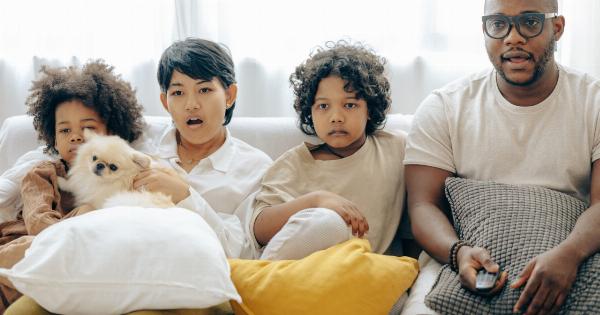Dogs may seem like happy-go-lucky creatures, but they are just as susceptible to depression as humans are.
Unfortunately, they can’t tell us how they’re feeling with words, so it’s important for dog owners to be able to recognize the signs of depression in their pets. Here are some common symptoms of dog depression to watch out for:.
Lack of Energy
If your dog used to be energetic and playful but is now lethargic and seems uninterested in activities they used to enjoy, it could be a sign of depression. This could manifest as sleeping more than usual or simply being less active throughout the day.
Changes in Eating Habits
Depressed dogs often experience changes in their appetite. Your dog may eat less than usual, or they may stop showing interest in food altogether.
On the other hand, some dogs may start to overeat as a result of depression, leading to weight gain and further health issues.
Withdrawal from Social Interaction
If your dog typically loves spending time with people or other dogs but now seems uninterested in socializing, it’s a cause for concern.
A depressed dog may avoid interacting with humans or may start to isolate themselves from other animals in the household.
Excessive Licking or Chewing
Dogs may resort to self-destructive behaviors like excessive licking or chewing if they’re feeling anxious or depressed. Keep an eye out for any unusual behavior involving tearing, biting or chewing on their toys, blankets or even their own skin.
Aggression or Destructive Behavior
Depression in dogs can also result in sudden changes in behavior, including aggression and destructive tendencies.
If your previously well-behaved dog starts to destroy things in the house or turns aggressive towards people or other animals, it may be worth consulting a veterinarian.
Loss of Interest in Grooming
Dogs are typically fastidious when it comes to grooming, but a depressed dog may lose interest in self-care. They may stop grooming themselves, leading to matting and irritation on their skin and fur.
This can also lead to a decline in overall health, since grooming can help dogs remove dead skin cells and keep themselves clean.
Sleep Disturbances
If your dog is sleeping more or less than usual, it could be a sign of depression. Some depressed dogs may have trouble falling asleep or staying asleep, while others may sleep excessively to escape from their emotions.
Increased Sensitivity
If your dog is suddenly more sensitive to sounds, smells, or touch, it’s worth monitoring to see if it’s related to depression.
A dog’s heightened sensitivity may be a way of coping with depression, or it could be a symptom of an underlying health problem.
Unexplained Pain
If your dog seems to be in pain but you can’t identify the source of the discomfort, it’s possible that it’s related to depression.
Dogs who are feeling depressed may show unexplained signs of discomfort or pain because they’re having trouble coping with their emotions.
Difficulty Concentrating or Learning
Dogs who are feeling depressed may have trouble paying attention or retaining information during training sessions. They may struggle to learn new commands or tricks that would have been easy for them in the past.
This can also lead to a decline in overall obedience and behavior.
If you notice any of these signs in your dog, it’s important to consult with a veterinarian to determine the root cause of the behavior.
Depression in dogs can often be treated with a combination of medication, behavior modification, and environmental changes.































